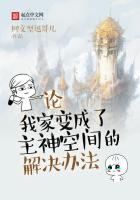Between these great forces, where was the Administration and how was one to support it? One must first find it, and even then it was not easily caught. Grant's simplicity was more disconcerting than the complexity of a Talleyrand. Mr. Fish afterwards told Adams, with the rather grim humor he sometimes indulged in, that Grant took a dislike to Motley because he parted his hair in the middle. Adams repeated the story to Godkin, who made much play with it in the Nation, till it was denied. Adams saw no reason why it should be denied. Grant had as good a right to dislike the hair as the head, if the hair seemed to him a part of it. Very shrewd men have formed very sound judgments on less material than hair -- on clothes, for example, according to Mr. Carlyle, or on a pen, according to Cardinal de Retz -- and nine men in ten could hardly give as good a reason as hair for their likes or dislikes. In truth, Grant disliked Motley at sight, because they had nothing in common; and for the same reason he disliked Sumner. For the same reason he would be sure to dislike Adams if Adams gave him a chance. Even Fish could not be quite sure of Grant, except for the powerful effect which wealth had, or appeared to have, on Grant's imagination.
The quarrel that lowered over the State Department did not break in storm till July, 1870, after Adams had vanished, but another quarrel, almost as fatal to Adams as that between Fish and Sumner, worried him even more.
Of all members of the Cabinet, the one whom he had most personal interest in cultivating was Attorney General Hoar. The Legal Tender decision, which had been the first stumbling-block to Adams at Washington, grew in interest till it threatened to become something more serious than a block; it fell on one's head like a plaster ceiling, and could not be escaped. The impending battle between Fish and Sumner was nothing like so serious as the outbreak between Hoar and Chief Justice Chase. Adams had come to Washington hoping to support the Executive in a policy of breaking down the Senate, but he never dreamed that he would be required to help in breaking down the Supreme Court. Although, step by step, he had been driven, like the rest of the world, to admit that American society had outgrown most of its institutions, he still clung to the Supreme Court, much as a churchman clings to his bishops, because they are his only symbol of unity; his last rag of Right.
Between the Executive and the Legislature, citizens could have no Rights; they were at the mercy of Power. They had created the Court to protect them from unlimited Power, and it was little enough protection at best.
Adams wanted to save the independence of the Court at least for his lifetime, and could not conceive that the Executive should wish to overthrow it.
Frank Walker shared this feeling, and, by way of helping the Court, he had promised Adams for the North American Review an article on the history of the Legal Tender Act, founded on a volume just then published by Spaulding, the putative father of the legal-tender clause in 1861. Secretary Jacob D. Cox, who alone sympathized with reform, saved from Boutwell's decree of banishment such reformers as he could find place for, and he saved Walker for a time by giving him the Census of 1870. Walker was obliged to abandon his article for the North American in order to devote himself to the Census. He gave Adams his notes, and Adams completed the article.
He had not toiled in vain over the Bank of England Restriction. He knew enough about Legal Tender to leave it alone. If the banks and bankers wanted fiat money, fiat money was good enough for a newspaper-man; and if they changed about and wanted "intrinsic" value, gold and silver came equally welcome to a writer who was paid half the wages of an ordinary mechanic.
He had no notion of attacking or defending Legal Tender; his object was to defend the Chief Justice and the Court. Walker argued that, whatever might afterwards have been the necessity for legal tender, there was no necessity for it at the time the Act was passed. With the help of the Chief Justice's recollections, Adams completed the article, which appeared in the April number of the North American. Its ferocity was Walker's, for Adams never cared to abandon the knife for the hatchet, but Walker reeked of the army and the Springfield Republican, and his energy ran away with Adams's restraint. The unfortunate Spaulding complained loudly of this treatment, not without justice, but the article itself had serious historical value, for Walker demolished every shred of Spaulding's contention that legal tender was necessary at the time; and the Chief Justice told his part of the story with conviction. The Chief Justice seemed to be pleased.
The Attorney General, pleased or not, made no sign. The article had enough historical interest to induce Adams to reprint it in a volume of Essays twenty years afterwards; but its historical value was not its point in education. The point was that, in spite of the best intentions, the plainest self-interest, and the strongest wish to escape further trouble, the article threw Adams into opposition. Judge Hoar, like Boutwell, was implacable.
Hoar went on to demolish the Chief Justice; while Henry Adams went on, drifting further and further from the Administration. He did this in common with all the world, including Hoar himself. Scarcely a newspaper in the country kept discipline. The New York Tribune was one of the most criminal. Dissolution of ties in every direction marked the dissolution of temper, and the Senate Chamber became again a scene of irritated egotism that passed ridicule. Senators quarrelled with each other, and no one objected, but they picked quarrels also with the Executive and threw every Department into confusion. Among others they quarrelled with Hoar, and drove him from office.















